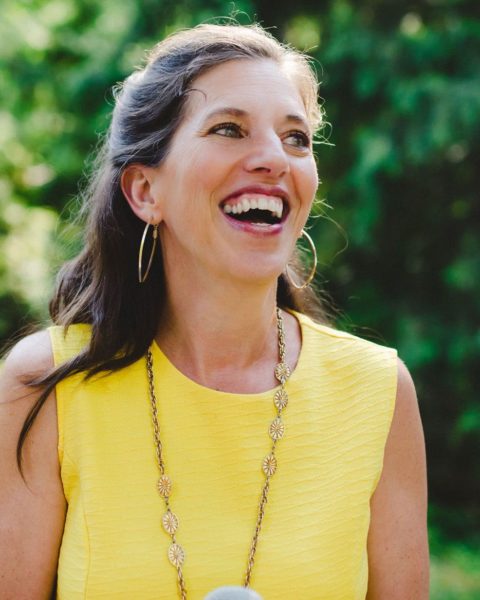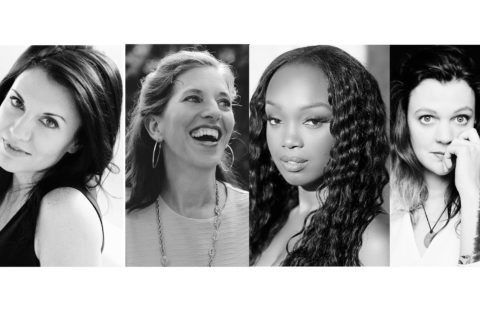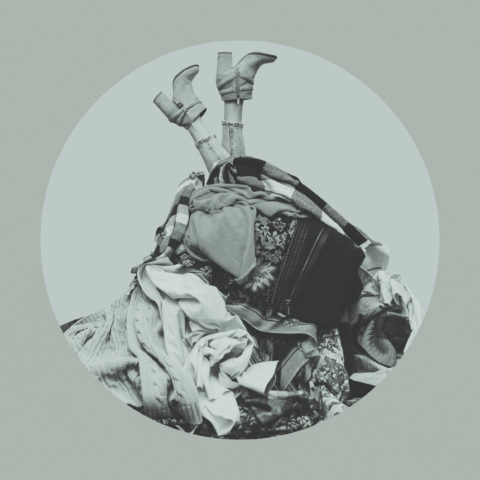We Talk to Four CAMH Difference Makers Working to End the Stigma of Mental Illness
"The veil of shame clouds the topic of mental illness."
As part of Canada’s 150 celebrations, the Centre for Mental Health and Addiction (CAMH) in Toronto embarked on the Difference Makers initiative earlier this year. It was the group’s way of drawing attention to people who have used research, philanthropy or advocacy to alleviate the suffering of anyone affected by issues of mental health. A national committee was tasked with going through the more than 3,700 nominations which could not have been an easy feat! In the past four weeks, CAMH has slowly unveiled its Difference Makers in various cities across Canada. We spoke with four of the 150 Difference Makers to hear their stories and how we can all make a difference.

Stacy-Ann Buchanan
Actress, Filmmaker and Mental Heath Advocate @stacynbuchanan
How has mental health touched your life?
Mental health has not only touched my life. It has changed my life for the better. I am a more understanding, patient and obsessively grateful person because of my previous struggles with anxiety, depression and suicidal thoughts. I take pride in raising awareness on mental health and I strive to let anyone struggling with any form of mental illness, know that they are not alone.
How did you react?
I was scared. Really scared. I knew I was sick so I wore a mask everyday. I plastered makeup on my face, draped myself in expensive attire and faked my happiness. I figured if I looked and acted happy on the outside, the pain I felt on the inside would magically dissipate.
What are signs that people should be looking for?
I can only speak for myself. Anxiety caused me to do things fast. Move fast. Speak fast and to constantly worry. I was never truly comfortable. Another major sign for me was the increase in my heart rate. My depression however, came in two different stages: I had days I went without brushing my teeth, combing my hair, taking a shower, eating myself silly or not eating at all. And I had days where I my nails were done, I was rocking the hottest outfits and I was having a ‘good time.’
Stigma is a complicated term. What can we do about it?
Stigma is the pink elephant in the room. Stigma is the huge pile of dust that is constantly being swept under the carpet. Stigma is the core component to many people’s response to mental illness and because of that many people suffer deeply in silence. We can change that by first, removing the veil of shame that clouds the topic of mental illness, start talking about it, and view it as any physical illness.

Amelia Curran
Singer/Songwriter @Amelia_Curran
How has the topic of mental health touched your life?
Mental health is something we all have to maintain, equal to our physical health. Mental illness, in its stages of secretive to fatal, is something I have witnessed and experienced all my life.
How did you react?
I did nothing until I got tired of doing nothing. I spoke up once, in 2013, and have not been permitted to be quiet since, and have no intention of doing so.
What can we, as a community, do to face and confront issues of mental health?
We have to take pause in our judgement of other people. We have to realize that mental health is something we all have, and that mental illness is not discriminatory. People do not suffer mental illnesses because they have done something wrong. Trauma is not exclusive to veterans. Addictions are not exclusive to poor people. Change your mind.
Does getting help mean a lifetime of medication?
Of course not. There are plenty of options for mental illness treatments and addictions recovery, and medication is one – a valid one, that unfortunately comes with it’s own heavy stigma. Artists, in my experience, are particularly wary of medications. We are afraid of dulling inspiration. I’ll share with you what a doctor said to me nearly fifteen years ago – that if this particular medication doesn’t feel right, the good news is there are plenty of options out there.
What do you wish that people knew about mental illness?
I wish people knew that it could happen to them. Compassion is difficult to demand, until it happens naturally, though lived experience. If people understood that none of us are immune, that these stories are about sons and daughters – then I think compassion would be easier to come by.

Rebecca Gibson
Filmmaker, Writer, Actor, founder of the Orange Daisy Project for teenage girls @livefrmwinnipeg
How has mental health touched your life?
After I began work on this project our family was touched by trauma and I ended up in a mental hospital. I was released from the hospital with no follow up care. About a year after this occurrence, my teenage daughter, who had also been impacted by the trauma, began to exhibit signs of depression and anxiety. I was reluctant to talk to her about it because I was working on Orange Daisy Project; I was scared I might have been looking at the world through the lens of mental illness. I asked her, ‘Do you want to see a doctor?’ And she said, yes. That sparked a deeper level of mental health awareness, as we embarked on a plan toward wellness for her.
What are some signs that people should be looking for?
The best person to see the signs of mental illness is you. I knew I wasn’t well for a long time before I went to the doctor. I was exhausted all the time, but unable to sleep. Crying all the time, in physical pain all the time. I wasn’t able to find joy in anything. And any small “tragedy” was the end of my world. I never wanted to go out or see anyone who knew me because I didn’t want them to see me like that.
What are the biggest mistake people make when dealing with mental health?
The biggest mistake people make when dealing with mental health is not recognizing that every person has a mental health journey. Just as we all have to make physical health choices, like eating well, sleeping well, and exercising, we need to make mental health choices. For some people making positive mental health choices is hard. There are barriers, which include mental illness, addictions, trauma, and lack of support. Just as we do not shame people for having physical health issues, we must not shame those who have mental illness.
What do you wish that people knew about mental illness?
Many of the smartest, funniest, most productive, and most creative people I know live with mental illness. Many of the healthiest people I know live with mental illness. I have learned that mental illness isn’t a sentence; it’s an opportunity to discover your unique vulnerabilities that may be your greatest gifts.

Victoria Maxwell
Mental Health Speaker and Performer @Victoria_BPP
How has mental health touched your life?
When I started writing my plays, I did family history research and I found out how pervasive it was in my family tree. Much of the family mental health conditions were never named or identified. And many didn’t even have names. PTSD was shell shock. Alcoholism was normalized as a part of what many men did when they came back from war. Post-partum depression was considered the baby blues (people still confuse and misidentify it). Anxiety disorders were ‘bad nerves’.
Where do art and mental health intersect?
Art has been a mainstay of my wellness toolbox. Writing, performing connects me to my meaning and purpose and THAT helps keep me well. Art connects us to hope and Life.
What are the biggest mistake people make when dealing with mental health?
Reaching out only when mental health issues become a crisis. That’s like waiting until stage 4 cancer to start going to the doctor. No one would ever think that’s a good idea. And no one I know is ashamed to get help for cancer or thinks it’s a sign of weakness. It’s wisdom to get assistance and to get it early. The best chance of full recovery for any condition in our lives is early intervention.
If someone is suffering, will they ever get better?
I see people get well and recover all the time. What recovery is for each person is different. What I see in common with all of us, all these individuals, is accepting we have mental health issues we need to look at and the willingness to be proactive in our own recovery and wellness.
(Learn more about CAMH’s 150 Difference Makers)








